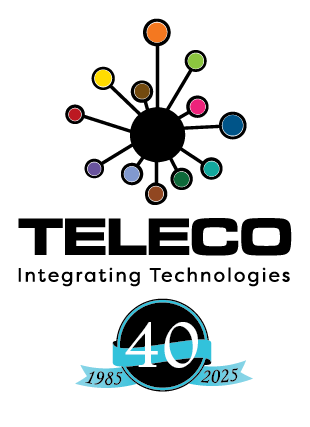
Leading Managed Technology Services Provider (MTSP) Educates SMBs on the Changes to Expect in the Workplace and Home Office, Post-Pandemic
THUNDER BAY, ON – September 2020 – Teleco, a leading managed technology services provider (MTSP) announced today that the company is preparing small to midsized business (SMB) owners on what to expect in the workplace, after the pandemic. With people working from home in droves, there is plenty of speculation as to where the modern business is headed in terms of remote staff, on premise staff and hybrid staff. With some experts expecting the earliest vaccine to arrive sometime in 2021, most business owners are assessing their options and planning for their futures, now. As a trusted IT advisor, Teleco is helping companies to map out solutions to address the new workplace reality.
The data is crystal-clear when it comes to employee sentiment about the brave, new world of work-from-home (WFH). According to the New York Times and Morning Consult, “In a survey of 1,123 remote workers…86% said they were satisfied with the current arrangements — even when that sometimes meant working from their bedrooms or closets.” Furthermore, more than half of that number, 47% reported they were “very satisfied with the current arrangements.” This isn’t a surprise because of the obvious increases in freedom, flexibility, and productivity spikes which are all natural byproducts of WFH. However, many business owners are still asking themselves questions like, “How do I effectively manage my team? How do I keep our network secure with everyone working-from-home? Which portion of my workers will need to remain in-person vs. remote? How do we foster collaboration and strengthen the company culture?”
While the answers to those questions are still moving targets, the pandemic is forcing companies to make these decisions before their lease renews. “Unfortunately, due to health concerns, the ‘open floorplan’ concept is no longer going to be an option for most companies,” stated Penny Belluz, Director of Operations of Teleco. “As a result of this shift, we’ll see two major movements. First, some businesses will opt to downsize their office space and to reallocate their reduction in cost to strengthen their IT infrastructure as they go full bore into a remote workforce. For companies who double-down and reinvest in commercial real estate, their space demands will grow dramatically, because of the social distancing recommendations.”
Some workers will return to “50/50” offices, where they’re in the office for 3 days, but out for 2 days, or any variation thereof. Additionally, once employers learn how to take advantage of geological arbitrage, the cost savings that occur when a company budgets a San Francisco salary to hire someone with similar talent from the Midwest, at a much more affordable rate, WFH could likely expand to 4-5 days per week for most workers.
These shifts don’t come without complexity, though. As WFH grows into the new standard, SMBs need to consider the rigorous demands that will place on IT. “Business owners need to understand that if you have 30 employees and one main office, you now need to treat that situation like you have 31 distinct offices. Each one will require a dedicated internet network, firewall, access to private company network and of course, cybersecurity must be thoroughly considered, as well,” added Ms. Belluz.
While 45% of home networks are already infected with malware, like keyloggers, a type of malware which records your keystrokes and sends your passwords back to the hacker. Historically, IT departments have never tackled the home office before because of its inherent complexity and the multiple users that utilize the network. The network is only as secure as its weakest link, and if someone’s child is playing online video games and exposing the network to potential threats, there’s a question of where to draw the line. Does the IT department block your child from playing video games? Can your teenager download apps that will make their TikTok videos more likely to “go viral”, when it could affect your company network?
Teleco is leading the way and consulting with business to create a clear transition plan to whichever version of WFH suits them. “Fortunately, the technology that Teleco deploys enables our customers’ employees to be just as productive at home. We work with our customers to customize solutions that support their WFH objectives,” commented Belluz.
ABOUT TELECO
TELECO is a locally owned technology company committed to delivering specialized solutions (on premise PBX, VoIP, hosted & SIP services, managed IT services) and products since 1985.
Today TELECO designs, installs and maintains all major technology solutions for any size business including on premise PBX telephone systems, VoIP, Hosted and SIP Services, Video Conferencing, IT Managed Services, Surveillance Security Solutions, Point-to-Point Networking solutions and Structured Data Cabling. This also encompasses overhead paging systems, point to point wireless applications, apartment entry systems and system relocation’s. We don’t just sell products we help you implement technology to enhance your business. This philosophy and technology portfolio creates a one stop solution and provides the convenience of a single point of contact for all your technology needs.
